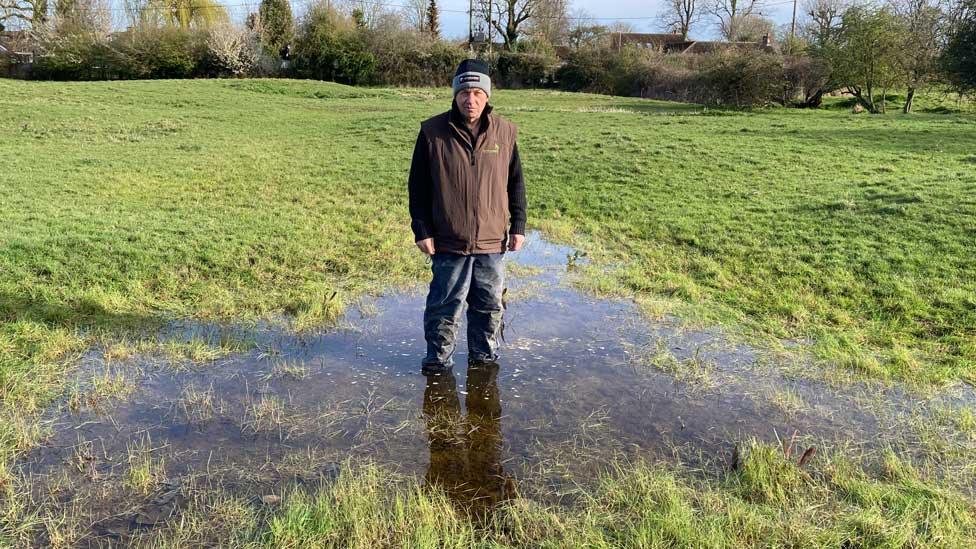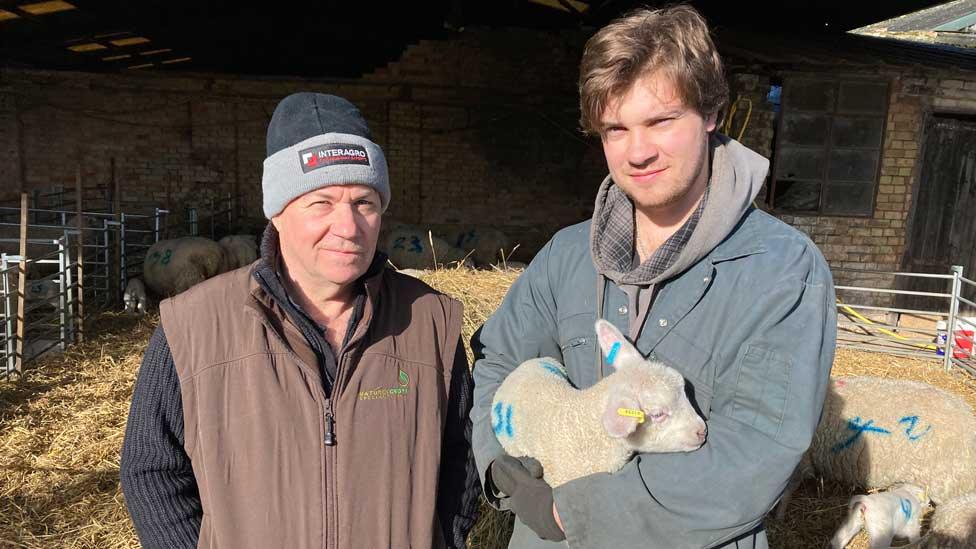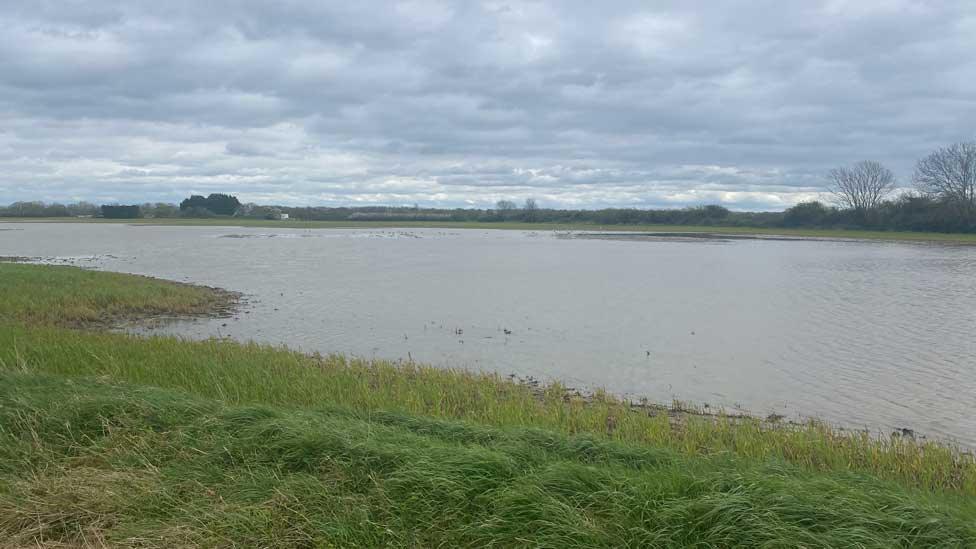Wet weather plays havoc with Cambridgeshire farmers
- Published

Flooding has affected all the fields on Richard Molton's farm in Sawston, Cambridgeshire
Farms across Cambridgeshire are experiencing unprecedented flooding.
Met Office statistics show the East of England recorded both its warmest and wettest February on record.
With lambing under way, some farmers are struggling to find enough dry fields in which to keep their sheep and new-born lambs.
The Country Land and Business Association (CLA) said: "The prolonged period of rain over recent months continues to take its toll on farms."
According to Met Office figures, the region experienced a record-breaking 106.4mm of rain in February - 248% of the 1991-2020 average for that month.
With March typically the busiest month in terms of lambs born, farmers with a shortage of covered pens and dry fields are finding the adverse weather extremely difficult to cope with.

The lambing season on Huntingdon Farm is being complicated by a lack of grazing land due to flooding
Richard Molton, 59, from Huntingdon Farm, Sawston, said: "It's been horrendous. The wettest winter I can remember in almost 50 years of farming.
"We have land by the River Cam. In January we had to move sheep off it because everywhere was flooded. They were on little islands."
Mark Riches, from the CLA, said: "Lambing is already a challenging and extremely busy period for farmers but with more rain in the forecast, and the chance of flooded fields, this adds to the stress and pressure.
"The wet weather is not just a problem for those lambing.
"Due to the saturated land in some parts of our region we know that the spring drilling season will be frustrating for some, and farmers are having to be extremely patient before venturing into fields to prepare seedbeds and plant crops."

According to Met Office figures, the East of England experienced a record breaking 106.4mm of rain in February
Mr Molton added: "With all the rain, we can't get the fertiliser on the fields at the right time. We'll feel the knock-on effect throughout the year.
"We do seem to be experiencing these extremes of weather more and more nowadays. Anything could happen. We may yet experience drought this summer."

Follow East of England news on Facebook, external, Instagram, external and X, external. Got a story? Email eastofenglandnews@bbc.co.uk, external or WhatsApp 0800 169 1830